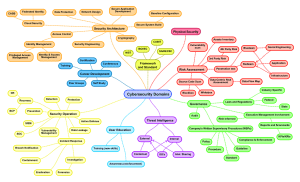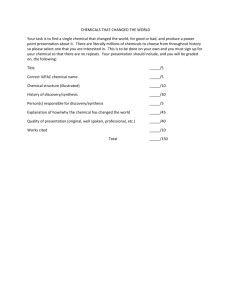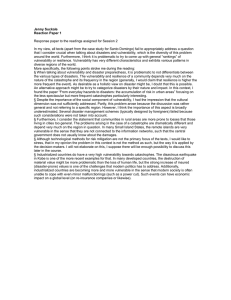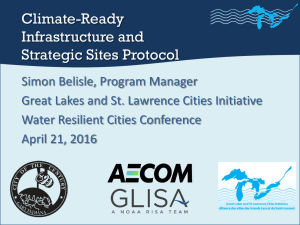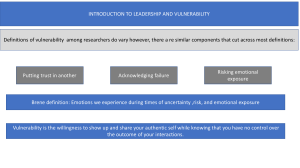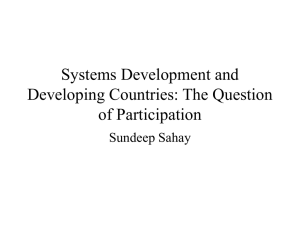Climate change and social vulnerability
advertisement
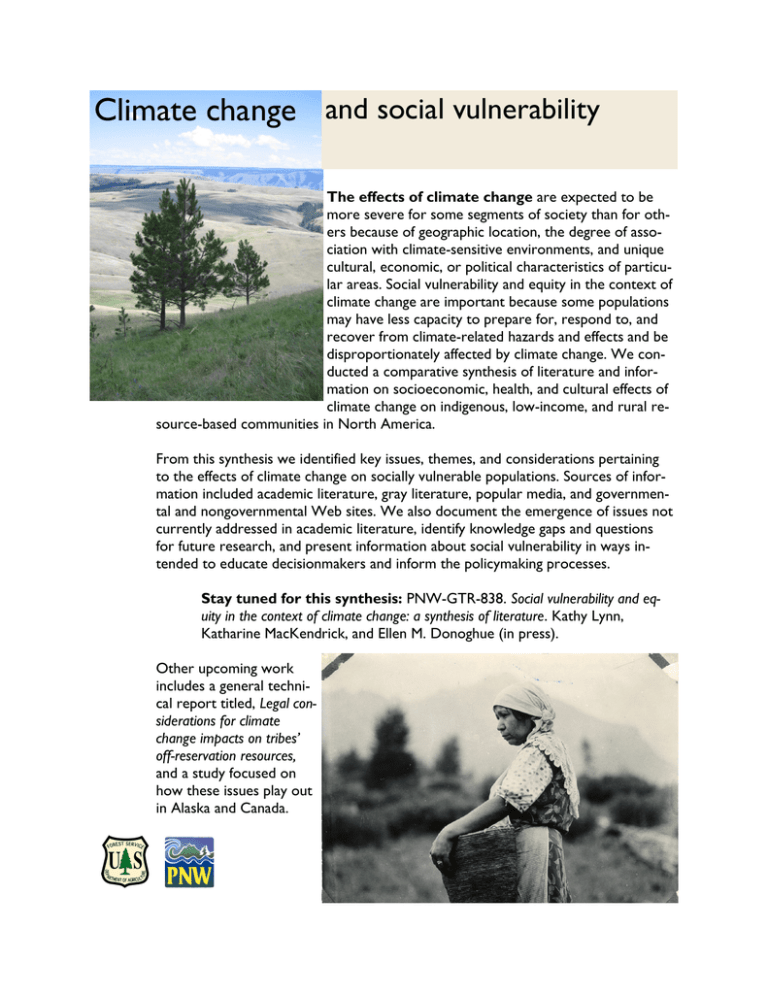
Climate change and social vulnerability The effects of climate change are expected to be more severe for some segments of society than for others because of geographic location, the degree of association with climate-sensitive environments, and unique cultural, economic, or political characteristics of particular areas. Social vulnerability and equity in the context of climate change are important because some populations may have less capacity to prepare for, respond to, and recover from climate-related hazards and effects and be disproportionately affected by climate change. We conducted a comparative synthesis of literature and information on socioeconomic, health, and cultural effects of climate change on indigenous, low-income, and rural resource-based communities in North America. From this synthesis we identified key issues, themes, and considerations pertaining to the effects of climate change on socially vulnerable populations. Sources of information included academic literature, gray literature, popular media, and governmental and nongovernmental Web sites. We also document the emergence of issues not currently addressed in academic literature, identify knowledge gaps and questions for future research, and present information about social vulnerability in ways intended to educate decisionmakers and inform the policymaking processes. Stay tuned for this synthesis: PNW-GTR-838. Social vulnerability and equity in the context of climate change: a synthesis of literature. Kathy Lynn, Katharine MacKendrick, and Ellen M. Donoghue (in press). Other upcoming work includes a general technical report titled, Legal considerations for climate change impacts on tribes’ off-reservation resources, and a study focused on how these issues play out in Alaska and Canada.

